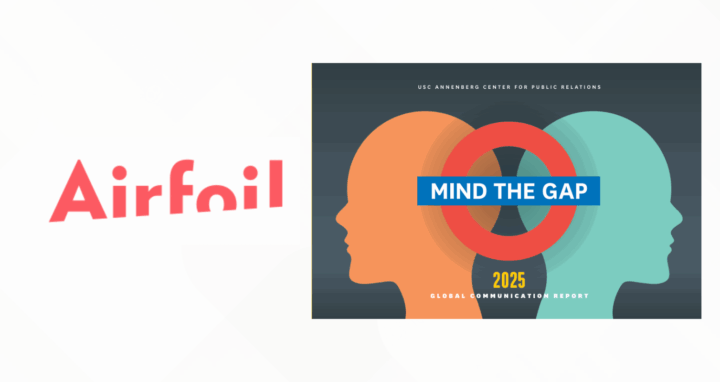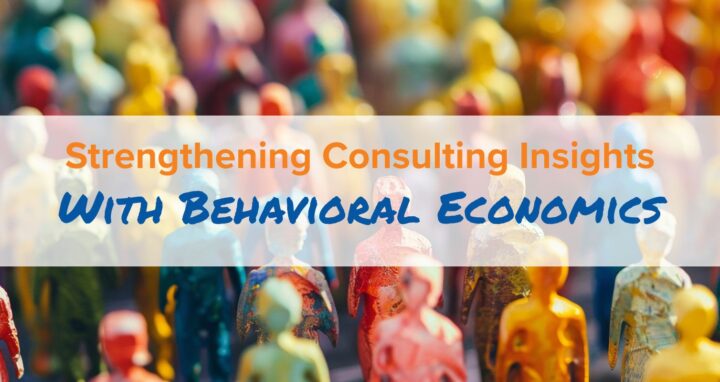With pivotal elections across the globe, continuing conflict in many regions of the world and significant economic challenges, organisations are certain to need expert communications in 2024. So, we asked Worldcom Public Relations Group’s Global Partners to share their predictions and advice for the top trends and challenges that will shape communications and the PR environment in 2024.
You can also find a post that pulls together Partner insights on Public Relations and Generative AI: A New Era.
We’ve captured their thoughts in a seven-post series that covers everything from AI to sustainability. We’ve also included posts on two very important regions, Latin America and Malaysia and Indonesia.
We hope you find the advice helpful as you navigate your way through the challenges and opportunities that 2024 will bring.
Part 1 – Artificial Intelligence and The Role of People
According to the Worldcom Confidence Index (WCI) Artificial Intelligence is one of the top four business topics in terms of active engagement by the global C Suite. But it’s also a topic that saw a significant decline in confidence in the January 2024 WCI results. So, we asked our global experts for their thoughts on how to navigate the opportunities and threats provided by AI.
Human oversight is essential to get the benefit of AI in workplace communication
By Ciara Flaherty, Client Director and Head of Internal Communications, Springboard Communications, Cork, Ireland
AI can be an asset for internal communication teams, offering automation, streamlined processes and data-driven insights. However, it should be viewed as a supporting tool, not a replacement for human communication professionals.
To strike the right balance, organisations should adopt a holistic approach, where AI augments the capabilities of communication teams rather than replacing them. Organisations should establish clear policies for AI use in internal communications, ensuring that they align with the broader communication strategy.
Human oversight should be integral to the process, offering checks and balances to mitigate potential pitfalls. By embracing AI as a complementary tool in their communication strategies, organisations can harness its power to improve efficiency and gain valuable insights, while preserving the essential human elements that make internal communications truly effective. In this harmonious blend of technology and human expertise, internal communications will thrive, fostering stronger relationships, engagement and collaboration within organisations.
Protect your brand from a consumer backlash to AI
By Robert Sanjaya, Associate Director, Cognito Communications, Jakarta, Indonesia
AI is becoming embedded across all aspects of business, especially in customer facing interactions previously done on a human-to-human basis. There is a real danger of consumer pushback and resentment towards enterprises that are replacing human responses with synthesized ones. Companies need to carefully evaluate the benefits of AI in these functions and communicate carefully to ensure that the customer loyalty built over years and decades is not undermined by the loss of the human touch.
Beyond AI: humanization and emotional connection
By Imma Folch, CEO and Founder, LF Channel, Barcelona, Spain
As AI continues to be a powerful tool, PR strategies will focus on the ‘Humanization of Communication’. In a world crowded with impersonal messages, brands will seek the ‘Universal Emotional Connection.’ PR strategies will focus on building authentic stories that resonate with diverse audiences, highlighting the humanity behind the brand as a crucial element.
Healthcare provider organizations will turn to external innovators and early adopters to understand how to unlock AI-driven value
By Mary M. Erangey, Senior Vice President and Healthcare Practice Lead, Public Communications Inc., Chicago, USA
AI-driven transformation in healthcare will be led from the outer edges rather than from the center where the biggest companies have traditionally dominated. Why? Because the way to discover how these tools transform care delivery and processes is to put them to work. The healthcare innovators who have taken calculated risks to pilot AI tools with real-world projects – whether for clinical, direct-to-patient or back-office uses – will be in demand to help larger systems build trust and show the way forward. This dynamic will be particularly important as health systems and providers seek to clarify how to budget for AI implementations and prove ROI. Healthcare systems looking to crack this partnership code will benefit from communities like MATTER, a healthcare startup incubator, hub, and corporate innovation accelerator headquartered in Chicago.
AI is Not for Every Brand or Customer
By Chris Baldwin, Founder & Chief Visionary Officer, True Digital Communications, Cleveland, USA
With AI grabbing headlines as brands and companies look for new ways to use it, watch for other brands to go in the opposite direction and promote real human interactions and touch points. People want to do business with people, and while there is a time and place for engaging AI, thoughtful brands will use their people and real communications as their differentiator. These progressive brands will identify points in the customer journey where people, not AI are the best solution for a meaningful and lasting brand experience. It won’t be for every brand or customer, but customer engagement and interaction goes beyond enabling an AI response. At the same time, watch for AI to become better at customer engagement deeper in the buying funnel.
Company policies are essential around ChatGPT use
By Bonnie McLaughlin, Vice President and Public Affairs Lead, RH Strategic Communications, Seattle, USA
Everyone is going to go big with ChatGPT. Some will get it right, some will falter. Employees at all levels will probably over rotate into using it and there may be a moment where we start to pull back. Companies and firms will need to put formal policies and guidelines in place for its use. More specifically, communications and public relations teams will have to identify rules for engagement to ensure privacy of confidential information and that institutional and client knowledge is properly incorporated. We will need to figure out as communications professionals (and humans!) how we interact with and maximize technology. We have fire in our hands.
AI will power improved marketing performance
By Jasmin Sobhanian, Marketing Advisor, HBI Communication, Munich, Germany
Smart organisations will use AI tools to transform marketing effectiveness. Applications for the technology include smarter insight, improved personalisation and the effective use of video.
- AI-powered audience analytics can help companies better understand their target audiences by analyzing data from various sources, such as social media posts, website visits and surveys.
- AI-powered personalization can help companies personalize their communications by analyzing data from various sources, such as customer data, purchase behavior and website visits.
- Content optimization and video editing: AI can create scripts, storyboards and even entire videos from scratch. Companies can use this as inspiration to create high-quality video content quickly and easily.
- Video analytics: AI can analyze video data to see how viewers interact with the content. This information can be used to improve future videos and ensure they meet the needs of the target audience.
- Video promotion: AI can help companies promote their videos on social media platforms, search engines and other online platforms. This can help companies reach a wider audience and get their videos seen by more people.
AI will move from supplemental to transformative
By Roger Hurni, Partner, Off Madison Ave, Phoenix, USA
2023 was the year of AI experimentation. However, in 2024, AI will move from being a tool that supplements writing, image creation, and research to one that transforms companies, and the processes they employ. This does not mean eliminating the human factor. It means embracing it. The combination of human intelligence with the efficiency of AI will create new opportunities for companies to realize greater levels of revenue, efficiency, and brand loyalty.
The importance of trust in Digital Transformation
By Stephanie Paul, Chief Executive Officer, Phillips Group, Brisbane, Australia
2024 will bring abundant technological advancements that bring forth the expectations for communication leaders to shift processes, prioritise AI and implement robust cybersecurity measures. It will be a requirement for organisations to have the capability to not only adapt, but to flourish in the digital landscape. Industry leaders will be required to consider shifting aspects such as processes, organisational culture, and customer engagement. Investing in technologies such as AI will be imperative to driving operational efficiency, and vital to enhancing client experiences. Data analytics, automation, and fostering a digital mindset will empower communication teams to leverage technology to deliver innovative results. Digital transformation will pose greater cybersecurity risks. As a result, organisations will need to implement more robust cyber security measures to ensure trust is maintained with stakeholders in an increasingly interconnected world.
Download the updated 2025 Predictions eBook:
The Future of Communications: 2025 PR and Communications Trends
Can we help?
If you would like help from any of the experts in this e-book please contact them direct via the weblinks provided on individual pages. For any of our other experts please contact Todd Lynch.
And, if you’d like to keep your communications strategy ahead of the curve, see what over 100,000 C Suite executives around the world are thinking by visiting our Worldcom Confidence Index global tracker which is updated monthly.






